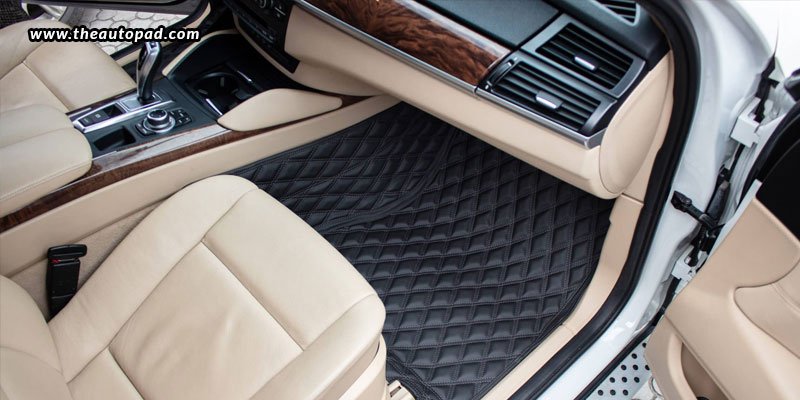Fuel and car floor mats? How could they possibly be related? It may seem ridiculous at first; how can anything under your feet affect the price you pay at the pump? However, weight is just one of many details that are important in the field of vehicle engineering. As automobiles get more refined and fuel-efficient, heavy-duty floor mats are just one tiny modification that can have a subtle effect on performance. Surprised? Come, let’s examine the intriguing science underlying this underlying connection, and explore whether your choice of floor mats could be costing you more than you think.
Understanding the connection between vehicle weight and fuel efficiency
We have to first understand the connection between vehicle weight and fuel usage before we can look into the influence of floor mat weight. To accelerate and sustain speed, heavier cars need more energy, which means they need more gasoline. Even with the increasing efficiency of modern engines and hybrid systems, the law of physics still applies: the more mass, the more energy required to move it.
To what extent does weight affect fuel efficiency?
General automotive principles state that a vehicle’s fuel economy can be slightly decreased by adding weight. The precise effect varies according to the size of the vehicle; smaller cars may have more obvious alterations, while larger cars are often less affected. In terms of floor mats, all-weather rubber or thermoplastic mats are heavier, especially in SUVs or trucks, whereas an OEM carpet mat set is usually lighter. Custom luxury or dual-layer mats can occasionally weigh significantly more, which raises the vehicle’s total load.
Engineering viewpoint: The reason weight adds up
In order to minimize weight in new models, automakers use materials like carbon fibre and aluminium, thinner but stronger glass, lightweight wiring harnesses, and lighter dash panels and seat frames. Examining your floor mats may sound strange, but the idea is the same: if weight can be decreased without sacrificing functioning or safety, then it’s a success. Track-day drivers frequently remove spare tires, back seats, and even floor mats to reduce weight since high-performance vehicles are especially sensitive to additional weight.
Alternatives to heavy floor mats
Heavy floor mats can be replaced with a variety of options to have the best of both worlds. While lightweight TPE mats are 20–30% lighter than rubber, they offer comparable weather protection. Hybrid mats have a rubberized top for traction and water resistance and a lightweight foam core. Using rubber mats during the winter or monsoon season and lighter mats during the dry season are examples of seasonal substitutions that can also work well. Furthermore, custom-fit mats are frequently lighter and precisely tailored, removing extra bulk.
Other hidden costs of heavy mats
Additionally, heavy carpets may have unstated expenses. Over time, heavier mats may cause the mat retention clips to loosen or break due to increased force, which could result in dangerous sliding. Carpet and foam-backed mats provide superior sound insulation, but rubber and heavy-duty mats can exacerbate cabin noise because of vibrations and rougher surfaces. Thick mats can also obstruct seat movement and reduce floor clearance, especially in cars with sliding second rows or third rows.
Should you prioritize weight when buying floor mats?
Your own priorities will determine if weight should be your first consideration when purchasing floor mats. The weight of the mats should be a major factor if you manage a fleet of vehicles, drive an electric or compact car, strive for hypermiling or fuel optimization, or exchange accessories frequently. Mat weight might not be as crucial, though, if you drive a large SUV or truck, prioritize safety and style, drive seldom, or your car has a high fuel tolerance. The choice ultimately comes down to how much you value fuel economy in comparison to other aspects like durability and style. Although it may seem insignificant, the weight of your floor mats can have a subtle impact on how fuel-efficient your car is, particularly when paired with other load-bearing accessories. Most drivers may not notice the difference, but commercial drivers, fuel-conscious enthusiasts, and owners of ultra-light vehicles may. Making wise choices for long-term performance is more important when selecting a floor mat than just appearance. Visit Autopad for lightweight, fashionable, and long-lasting car floor mats in Jayanagar, where every product combines performance and design.




